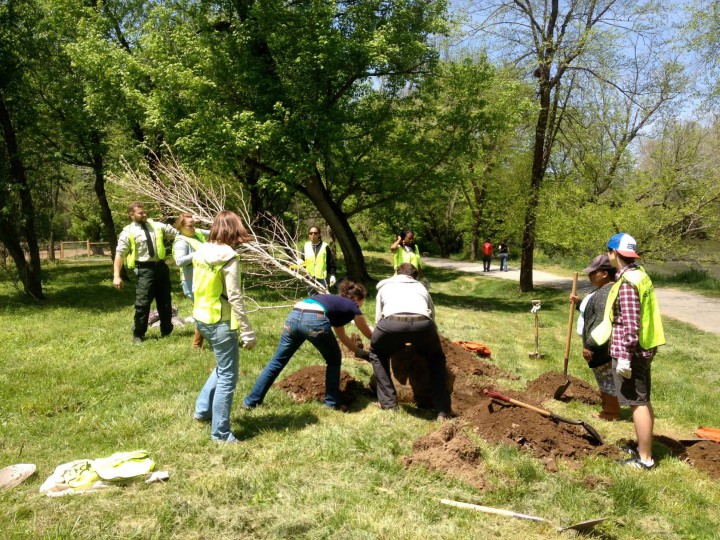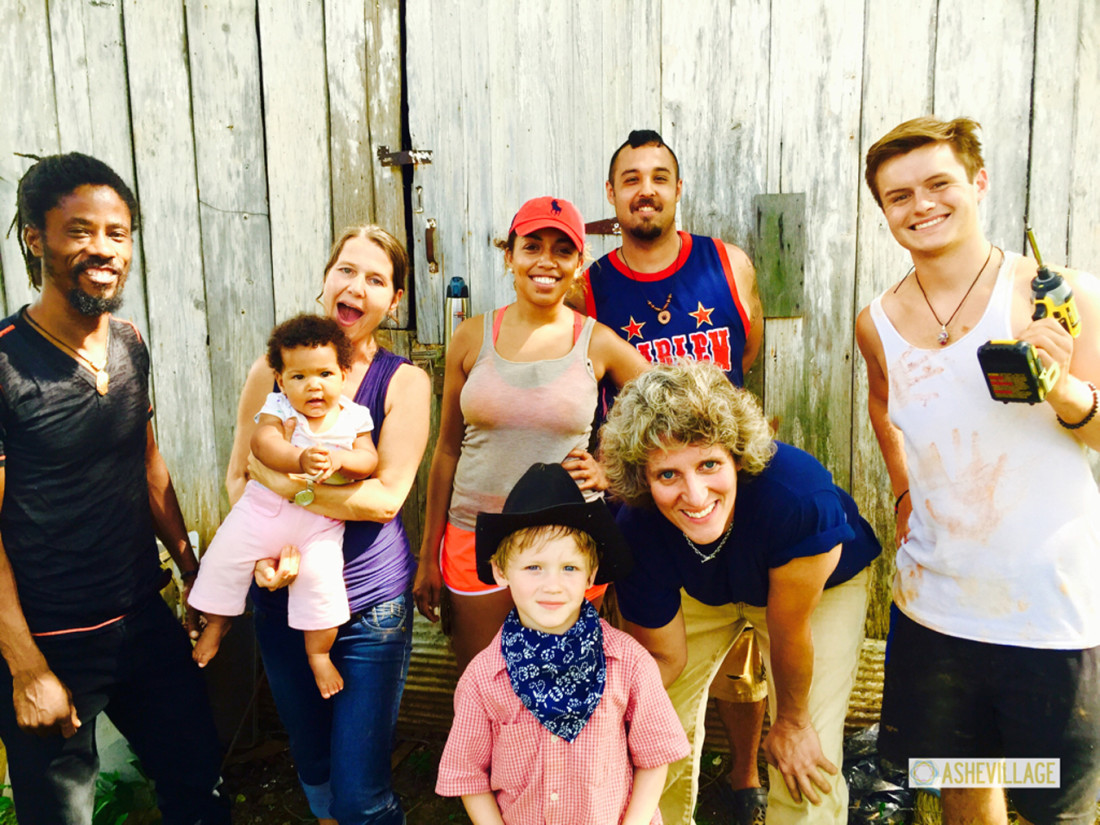“Be prepared” goes the Scouting movement’s mantra. And being able to face any challenge is often a goal of institutions. But the question is always: How? How can we be best prepared for whatever may come?
The Boy Scout carries his pocketknife. Emergency services train for possible scenarios. Young people study to pass the big test. Families save money for a rainy day. What these acts all have in common is that they help build skills and resources that can be called on one day in response to potential problems.
The folks at Ashevillage Institute are leading a charge this spring for a holistic approach to community preparedness known to the scientific community as resilience. They are throwing down the gauntlet to residents with their Community Resilience Challenge. The Challenge, as it’s called for short, was planned in collaboration with Daily Acts, a California-based nonprofit, and other groups across the country. The idea is to mobilize community members and inspire a chain reaction of groups and individuals pledging to take such actions as saving water, growing food, conserving energy, reducing waste and community building actions such as volunteering with a nonprofit or getting neighbors together for a potluck.
Similar projects have sprung up around the country, dating back to Daily Acts’ 2010 Garden Challenge for Sonoma County, which itself began as a spinoff of other efforts to plant, expand and revive residential food gardens. The following year, it expanded to include actions homeowners can take, such as energy efficiency measures, and it has been growing in scope and participation ever since.
This is the first year for a locally led Challenge in Asheville. Organizers here have set a goal of 828 actions pledged or taken by participants that contribute to regional and national resilience. Janell Kapoor, founding director of Ashevillage, reports the project has taken off quickly, and after nearly 400 actions were registered in the first week, they are on track to easily exceed that number before the monthlong registration period is over.
The Challenge is meant to be “a mobilization of acknowledgement of all the acts people are already doing,” Kapoor says. For some she says it will be “cataloging of actions,” but for others, she describes it as, “a call to action,” for people to be inspired to do more than they otherwise would have.

“In our area,” says Kapoor, “what’s already happening is so powerful.” Any one person planting a tree or growing food is great, she says, but “what if everybody in our city or county did something? Even if it’s just one more thing, when people often do as many as 10 or 20 actions, then we can start to see and track the difference that we are making.”
She also notes that the chemistry of competition can catalyze increased action. “Not competitive, like ‘I’m gonna beat you,’” she explains, “but there’s something about [seeing if] we can raise the stakes! How far can we take it this year. And what about next year?”
Resilience is not a new concept, but it’s been gaining traction recently among some activists around the country. In January, Mountain Xpress looked at some “big ideas” [See In Asheville and beyond, creative problem solvers are hatching new solutions Mountain Xpress, January 20, 2016] this community has come up with to respond to local and global-scale problems. In that article, agriculture scientist and author Laura Lengnick described resilience theory as it applies to agricultural methods, especially in the context of being prepared for things like climate change and economic shifts. As a consultant and board member at Ashevillage, Lengnick has been helping develop programs that teach resilient living skills such as foraging, fermenting and making herbal medicines. She is also one of the organizers of the Challenge.
Lengnick explains that resilient systems have three essential qualities: diversity, self-reliance and “a balanced portfolio of high-quality assets.” Assets come in five types: natural, human, social, financial and technological. To gauge success, it is important to look at how we are situated with each category. “Our own Asheville or regional resilience is only going to be as good as the least of those,” says Lengnick. “We really need to advance all of them together to create a resilient community.”
The Challenge is asking people to register their actions to promote these assets. Things local people are pledging to do include: plant small food gardens; install rain barrels and/or drip irrigation for existing gardens; turn off cars anytime they idle for more than 20 seconds; use alternative transportation, such as bike, bus or carpool to and from work or school regularly; buy in bulk and avoid individually wrapped items; shop locally whenever possible; transfer money out of big national banks to community banks and credit unions; volunteer with a nonprofit organization, among other things.
A lot of these habits are common practice for some Ashevilleans, but you might find a few surprises if you survey the list of action ideas. “That’s why something like the Challenge is really a different thing,” Lengnick points out, “because [as] we are hopefully teaching [people] a little bit about resilience, they become more aware of it. And when they go to check out what other people are doing, if they register, they are going to see all kinds of other actions, maybe ones they never thought of.”
Kara Sweeney co-founder of the Asheville Tool Library, a sponsor of the Challenge, is excited to see the actions that people and organizations come up with and invites them to prevent waste by using the tool library. “A lot of the projects people are registering for the Community Resilience Challenge will require tools, whether it’s a bunch of gardening tools or tools for making a rainwater catchment system, or making your home more energy-efficient. We can provide those tools so that people don’t need to buy them; they can just borrow them.”
Kapoor emphasizes that an important part of the Challenge is building partnerships. “We are growing this as a huge community partnership.” She encourages people to connect with the different groups in town, some of which are sponsoring the challenge, to offer support in whatever way they can.
There are lots of groups working to improve the community in various ways, but it isn’t about picking and choosing. The point of the Challenge is to put it all together and see where the community stands. “In the last 40 years, we have had all these different social movements that have been working in parallel, but with not a whole lot of overlap or integration, and I think this idea of resilience really helps integrate all these different efforts,” Lengnick explains. “That’s because resilience pulls together all these different threads and different groups and gives them a common purpose.”
Find out more about the Community Resilience Challenge in the local community at ashevillage.org/community-resilience-challenge. Registration of acts goes through the whole month of May. It is free to register and takes just a few minutes.






Before you comment
The comments section is here to provide a platform for civil dialogue on the issues we face together as a local community. Xpress is committed to offering this platform for all voices, but when the tone of the discussion gets nasty or strays off topic, we believe many people choose not to participate. Xpress editors are determined to moderate comments to ensure a constructive interchange is maintained. All comments judged not to be in keeping with the spirit of civil discourse will be removed and repeat violators will be banned. See here for our terms of service. Thank you for being part of this effort to promote respectful discussion.